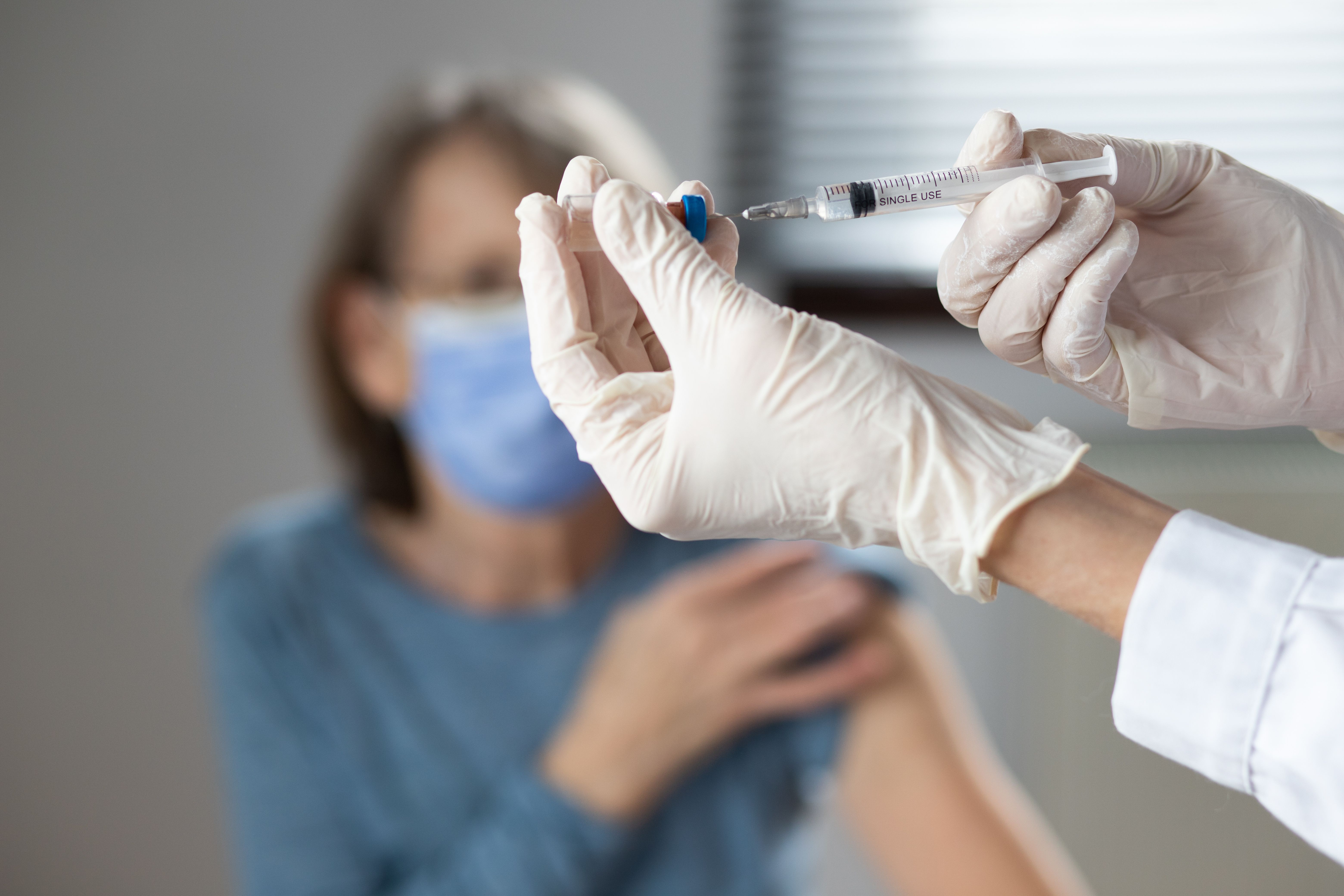- Center on Health Equity & Access
- Clinical
- Health Care Cost
- Health Care Delivery
- Insurance
- Policy
- Technology
- Value-Based Care
RSV Vaccines Effective in Older Adults in Long-Term Care Facilities
A robust antibody response was found in patients in residents of long-term care facilities who were given the respiratory syncytial virus (RSV) vaccine.
Use of the vaccine targeted at respiratory syncytial virus (RSV) is recommended for high-risk populations after a new study published in JAMDA1 found that a robust antibody response was found when adults living in long-term care facilities (LTCF) were given an RSV vaccine.
RSV is a major respiratory infection that primarily affects pediatric patients and older adults. Although there is no treatment approved for RSV in adults, 2 vaccines were approved by the FDA in 2023 to use in adults 60 years and older.2,3 The trials that were the basis of the approval of these vaccines focused primarily on healthy older adults, which could have overlooked the ways that the vaccines could affect less healthy older adults living in LTCFs. This study aimed to assess the short-term immune response of an RSV vaccine in a population of older adults 60 years and older living in an LTCF compared with healthy older adults.
All participants received either the Pfizer or GSK RSV vaccine as part of their routine care. All of the participants were from the University of Rochester Medical Center Infectious Disease Research Clinic and its 2 local LTCFs. All adults received their vaccines in either November or December 2023. LTCF A gave the GSK vaccine whereas LTCF B gave the Pfizer vaccine. All medical and demographic data were collected at enrollment.
Older adults living in long-term care facilities were shown to have antibody response to RSV vaccinations | Image credit: Melinda Nagy - stock.adobe.com

Participants were included if they were 60 years or older, were living in an LTCF or living independently in the community, had a life expectancy of more than 6 months, were planning to receive the vaccine, and could provide consent. Patients were excluded if they had a history of immunosuppressive conditions or medications, had a routine vaccine 14 days before or after their planned RSV vaccine, had a history of hypersensitivity, received blood or plasma products within 60 days before the vaccination, had previously received the vaccine outside of the studies, or had an RSV infection within 2 months of the study.
There were 152 participants who were included in this study, of which 76 were residents of an LTCF and 76 were community older adults. The Pfizer vaccine was given to half of the residents in LTCFs and the GSK vaccine was given to the remaining half. Recipients of the Pfizer vaccine were significantly older compared with the recipients receiving the GSK vaccine (78.2 vs 73.8 years). Participants living in LTCFs were also older compared with the community cohort (79.6 vs 72.6 years).
There were 146 participants who had evaluable data. Of these participants, 84%, 82%, and 90% had a positive seroresponse when defined by at least a 4-fold serum IgG antibody rise to the RSV prefusion protein of the A2 strain (FA), the B1 strain (FB), and the microneutralization assay A2, respectively. FA had a geometric mean fold rise in the clinic and LTCF cohort of 9.9 and 12.5, respectively; FB had 8.7 and 11.0; and RSV A2 had 12.8 and 15.5. There was no significant difference in geometric mean titers response based on the vaccine received.
There were some limitations to the study. There was a small sample size, and the community cohort used in this study was older than the study populations found in the phase 3 trial, which could have decreased the differences in immunological response between the 2 groups. Selection bias is possible due to adults in LTCFs having to elect to receive the vaccine. There was an imbalance in Pfizer and GSK vaccines given to residents living in LTCFs due to exclusions.
The researchers concluded that these results prove that vaccines for RSV can be given to higher-risk adults, with a robust antibody response seen for all. Future studies should work to corroborate these results to ensure safety when distributing the vaccines for adults 60 years and older living in LTCFs.
References
- Falsey AR, Branche AR, Peasley M, et al. Short-term immunogenicity of licensed subunit RSV vaccines in residents of long-term care facilities (LTCF) compared to community-dwelling older adults. J Am Med Dir Assoc. Published online September 21, 2024. doi:10.1016/j.jamda.2024.105281
- Bonavitacola J. First respiratory syncytial virus vaccine approved by the FDA. AJMC®. May 3, 2023. Accessed September 26, 2024. https://www.ajmc.com/view/first-respiratory-syncytial-virus-vaccine-approved-by-fda
- U.S. FDA approves Abrysvo, Pfizer’s vaccine for the prevention of respiratory syncytial virus (RSV) in older adults. News release. Pfizer. May 31, 2023. Accessed September 26, 2024. https://www.pfizer.com/news/press-release/press-release-detail/us-fda-approves-abrysvotm-pfizers-vaccine-prevention
